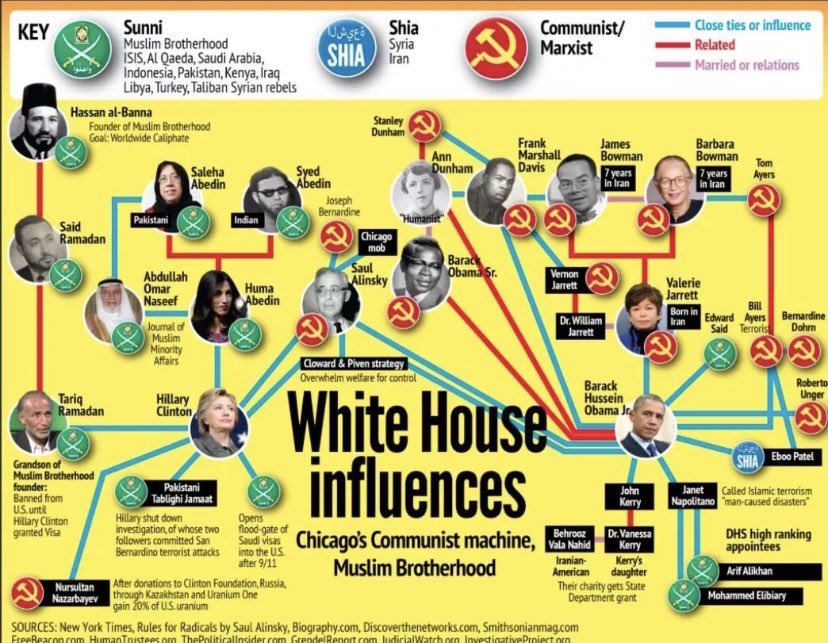The Brakes Paradox
What allows a Formula 1 driver to fly around the track?
It's not the engine, the tires, or the suspension.
It's the brakes.
Strong, reliable brakes unlock the driver.
Build brakes into your life that allow you to accelerate and hit turns without fear.
The Advice Paradox
Taking more advice leaves you less well-equipped.
Most advice sucks.
It's well-intentioned, but it's dangerous to use someone else's map of reality to navigate yours.
Winners learn to filter and selectively implement advice—take the signal, skip the noise.
The Opportunity Paradox
Take on less, accomplish more.
Success doesn’t come from taking on every opportunity.
It comes from deploying energy on the opportunities that matter—the 10x opportunities.
Time and energy are finite.
Say yes to what matters & no to everything else.
The Persuasion Paradox
Have you noticed that argumentative people rarely persuade anyone of anything?
Persuasive people don’t argue—they observe, listen, and ask questions.
Argue less, persuade more.
Persuasion is an art that requires a paintbrush, not a sledgehammer.
The Money Paradox
You have to risk losing money in order to make money.
Every winner has stories of the critical lessons learned from a big loss in their career.
Sometimes you have to pay to learn.
When in doubt, put skin in the game.
Scared money don't make money!
The Effort Paradox
You have to put in more effort to make something appear effortless.
Effortless, elegant performances are simply the result of a large volume of consistent, effortful, gritty practice.
Small things become big things.
Simple is not simple.
The Time Paradox
You have to know your death in order to truly live your life.
Time is cruel. You’ll love it with all of your being, but the reality is that time doesn’t care about you.
It is the ultimate unrequited love.
By accepting our time as finite, we are able to live.
The Productivity Paradox
Work longer, accomplish less.
Parkinson's Law says that work expands to fill the time available for its completion.
When you establish fixed hours to work, you'll find unproductive ways to fill it.
Work like a lion instead—sprint, rest, repeat.
The Fear Paradox
The thing we fear the most is often the thing we most need to do.
Fears—when avoided—become limiters on our growth.
Make a habit of getting closer to your fears. Treat them as magnets for your energy.
You may find growth on the other side.
The Desire Paradox
Desire leads to more achievement and more suffering.
Desire is a powerful force for growth, but the quest for more often distracts from the beauty of enough.
Pursue growth, but never forget the beauty in simplicity.
The Fancy Car Paradox
You see a fancy car and dream of the respect you'd get by driving it...while ignoring the person actually in it.
We all want respect. We believe fancy stuff will earn it.
It won't.
"No one is more impressed with your stuff than you are.” -
@morganhousel
The Choice Paradox
More choices, less satisfaction.
You might assume that more choice would be a good thing, but research has shown that more options lead to less happiness with whatever option is selected.
In a world of abundance, what we truly crave is scarcity.
The Looking Paradox
Sometimes you have to stop looking in order to find what you're looking for.
Ever notice that when you're looking for something, you rarely find it?
Stop looking—what you’re looking for may just find you.
This applies to love, business, happiness, & life.
The Destruction Paradox
Those who seek to destroy us sometimes spark the fire that allows us to grow.
Attacks and negativity meant to tear you down can provide the motivation to build yourself up.
The injection of chaos makes you stronger.
The Failure Paradox
You have to fail more to succeed more.
Our greatest periods of growth often stem directly from our greatest moments of failure.
Don’t fear failure.
Learn to fail smart and fast—never fail the same way twice.
Always put yourself in the arena.
The Growth Paradox
Growth takes a much longer time coming than you think, but then it happens much faster than you ever would have thought.
Growth happens gradually, then suddenly.
The best things in life come from allowing compounding to work its magic.
Let it work for you.
The Wisdom Paradox
“The more I learn, the more I realize how much I don't know." - Albert Einstein
The more you learn, the more you are exposed to the immense unknown.
This should be empowering, not frightening.
Embrace your own ignorance—embrace lifelong learning.
The Social Media Paradox
More connectedness, less connected.
Social media has created more connectedness than ever before—we're bombarded by notifications and dopamine hits.
But while we have more connectedness, we feel less connected to those around us.
Log out, hug someone.
The Abilene Paradox
Groups can collectively make a decision that runs counter to the actual individual preferences of many members of the group.
The natural desire to avoid "rocking the boat" prevents people from speaking up.
Consensus does not imply the optimal outcome.
The Speed Paradox
Sometimes you have to slow down to speed up.
Slowing down gives you the time to be deliberate with your actions.
You can focus on leverage and ROI—you can determine how to deploy your fixed resources more effectively.
Slow is smooth and smooth is fast.
The Locksmith Paradox
As the locksmith improves at his craft, customers become upset by the lower time input required to deliver a fixed output.
Same results, but the perception of value changed.
This focus on time > results derails progress in governments and corporations.
The Action Paradox
Sometimes inaction is the most powerful action.
Bias for action is a common trait of highly-successful people.
But don't confuse movement with action—a rocking chair moves, but it doesn’t progress.
Action is about progress. Stillness—inaction—can create it.
Those are 22 paradoxes that changed my life (and may change yours).
Follow me
@SahilBloom for more threads on growth, business, and investing.
I will write a deep dive on this topic in my newsletter. Join 90,000+ others and subscribe!
https://t.co/qMB8i60V46
We also cover many of these topics on our podcast. Upcoming episodes with
@waitbutwhy @awilkinson @stablekwon @ljin18 and more!
The recent episode with
@morganhousel Andreweep on a few of these paradoxes. You’ll love it.
https://t.co/dwxvpEXo8Y


















